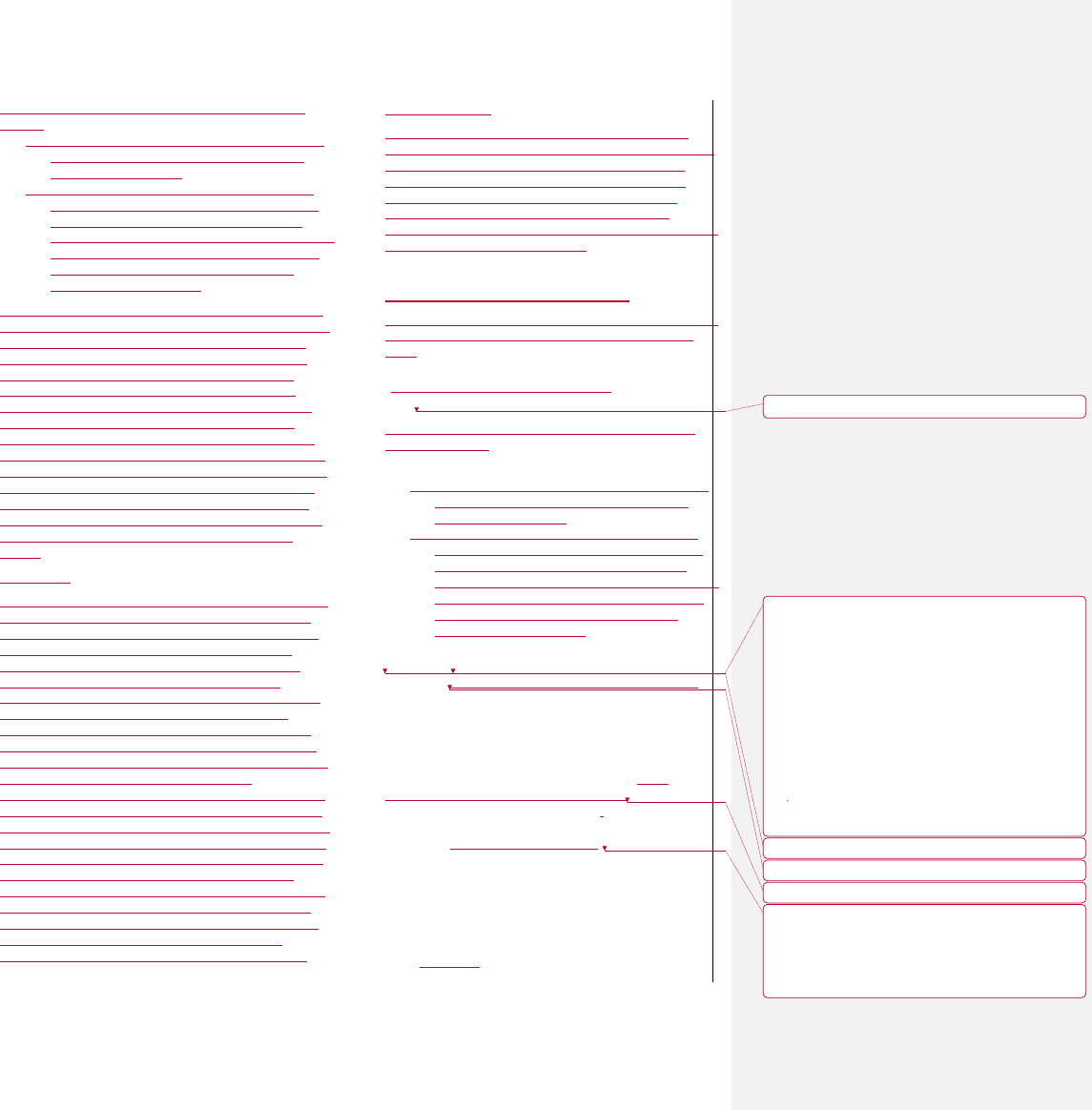
1
1
THE GRADUATE SCHOOL| 11
State University are not required to provide a Ball State
transcript. International students may have different
transcript submission procedures than domestic students,
and they should contact the Rinker Center for International
Programs for specific information and requirements.
Standardized Tests
The Graduate School does not require programs to
consider standardized test scores in admission. Programs
have complete discretion concerning whether or not they
require standardized test scores. You should refer to your
program’s graduate program handbook for more
information about the admissions requirements and process
for the program(s) you are interested in. If your program
requires a standardized test score (GMAT or GRE), that
score must be submitted to Ball State’s Office of Graduate
Admission directly from the administering agency.
Other Documents
If the program(s) you are applying to require letters of
recommendation, a resume or CV, a personal statement, or
other documents, these can be submitted or requested
through our online application process. It is your
responsibility to ensure all deadlines and requirements are
met. A prospective student should contact the department
or consult the department’s website and/or handbook for
specific program requirements.
Probationary Admission
Ball State University recognizes that some students who do
not meet the Graduate School GPA minimum may still be
able to make a strong case for admission to a master's
program. In these cases, programs may petition the dean of
the Graduate School for probationary admission of a
student whose grade point average from their degree-
granting institution is less than 2.75 if there is sufficient
evidence of the student's acadmic and/or professional
achievement indicating their potential for success in a
master's program. Probationary admission requires the
approval of the program director, department chair, and
dean of the Graduate School. Programs may also choose to
not allow probationary admissions in their programs.
Students admitted on a probationary status must earn a
minimum GPA of 3.0 in their first 9 semester credits of
graduate work approved in advance by the program
director, the chairperson (or their designee) of the major
department, and the dean of the Graduate School. Upon the
successful completion of these requirements, a student
admitted under probationary status will be eligible to
assume regular graduate student status. Students admitted
under probationary status are not eligible for an
assistantship until they assume regular student status.
Applicants who have a bachelor's degree from an
institution that is not recognized by its regional accrediting
association but who otherwise meet all Graduate School
and department requirements for regular admission may
request probationary admission. A recommendation for
probationary admission from the graduate program director
must be accompanied by a rationale and a probationary
course plan of 9 credits for approval by the department
chair, college dean and dean of the Graduate School. Once
admitted on probation, the applicant must earn a 3.0 after
completing the probationary course plan and be
recommended for regular admission by the academic
department.
Compensatory course work may be required for students
whose undergraduate majors do not prepare them for their
chosen master’s degree programs. Any such course
requirements in addition to the requirements for the degree
must be stated in the approved programs.
Exceptions to admission policies must be approved in
advance by the dean of the Graduate School.
Deferral
After official admission to a master’s degree, certificate, or
licensure program, the student, with permission from the
department, may defer enrollment for up to a year. A
deferral request must be approved by the end of the first
week of classes for the original application term. If the
deferral is longer than a year or the request is not approved
with the allotted time, the student may reapply for
admission but must submit new application materials and
meet all current admission requirements.
Conditional Admission
Applicants who have not submitted complete departmental
admission materials or who have not yet been officially
admitted to their departmental master’s degree programs
may be granted conditional admission. Students will be
notified of conditions that must be met at the time of
admission. If the conditions for a student’s admission have
not been fulfilled within the time period specified (usually
one academic semester), the student will be barred from
subsequent registration in the Graduate School.
Fresh Start Admission
A graduate student may request a “fresh start” when
changing or returning to a graduate program leading to a
master’s degree at Ball State University. A “fresh start” is
defined as beginning a graduate program and having the
graduate academic record recalculated to reflect no credits
attempted and no graduate grade point average for the new
program. All graduate courses previously taken at Ball
State University, however, will remain on the student’s
academic record.
To be considered for a fresh start, the student must submit
a graduate application and a written statement of purpose
for seeking readmission to the Dean of the Graduate
School and must meet the following criteria:
• a period of time of no less than six years has expired
since the student withdrew or was dismissed from a
Ball State graduate program,
Deleted: or
Deleted: semester
Deleted:
Deleted: semester

12| BALL STATE UNIVERSITY 2019-2020 GRADUATE CATALOG
• the student’s previous graduate GPA is below the
minimum required to earn a master’s degree (3.0 on a
4.0 scale),
• the student meets current Graduate School admission
requirements, and
• the student has been recommended for admission into
the program by the appropriate department.
Courses completed in a previous Ball State graduate
program will not transfer or be applied to the requirements
of the new program. The new program must be finished
and the degree conferred within six years of the completion
of the first new course. The student must complete a
minimum of 30 credits, and the program of study must
meet all departmental and Graduate School requirements.
Only one fresh start will be granted to any one graduate
student at Ball State University. Final approval for a fresh
start application rests with the Dean of the Graduate
School.
Accelerated Master’s Program (AMP) Degree Plan
Ball State offers departments the opportunity to develop an
accelerated master’s program (AMP) degree plan for their
undergraduate students. All such programs must be
approved through the normal curriculum approval process.
Students who enroll in these programs may be able to
count up to 9 credits to both the undergraduate and
graduate degrees and may be able to earn both degrees in
five years or less.
Admission Procedures and Program Policies
Upon earning a minimum of 75 credits and a 3.25
cumulative GPA, students may apply to a
combined program by completing the application
into the desired graduate program and submitting
required materials. Students must have earned at
least 30 credits at Ball State. Standard master’s
application and admission procedures as outlined
in the Graduate Catalog apply.
Students who are admitted into the program’s
AMP must maintain a 3.25 GPA while an
undergraduate student to remain in the program,
and if their GPA falls below this level, they will
be dismissed from the AMP. While a student
maintains undergraduate status, the quality points
earned in graduate courses will be used to
calculate the undergraduate GPA. These courses
will also transfer into the master’s degree program
and will count towards the master’s degree GPA.
If a student earns below a B (3.0) grade in a
graduate course while enrolled in the AMP, the
department has the option of not accepting the
course into the master’s degree program of study.
As determined by the participating bachelor’s
program, graduate courses earned as part of the
AMP may be applied to the bachelor’s degree as
electives or by substitution of graduate-level
courses for required undergraduate courses in the
major.
The regular six-year time-limit for completing the
master’s degree applies to students in a combined
program once the student is formally accepted
into the AMP.
Combined bachelor’s/master’s plan students are
not eligible for graduate assistantships until their
bachelor’s degrees have been awarded and they
have achieved graduate student status.
Students will remain in undergraduate status and
pay undergraduate tuition until they have fulfilled
all requirements for their bachelor’s degree.
For each student enrolled in the accelerated program, the
department will fill out the appropriate form and have it
approved by the program director and the graduate dean.
This form will outline the master’s level classes that will
count towards both the undergraduate and graduate
degrees, and the department will update the student’s
DegreeWorks audit to reflect the student’s plan.
Students may earn graduate credit both in an AMP and
under the Undergraduates Taking Graduate Courses policy.
In circumstances where a Ball State undergraduate student
earns credit under both policies, they may count 9 graduate
credits toward both their undergraduate and graduate
degrees in an AMP. Additionally, under the
Undergraduates Taking Graduate Courses policy, the
student may take an additional 3 graduate credits that may
be applied to either the undergraduate or graduate degree,
but not to both. Under no circumstances will
undergraduate students be permitted to take more than 12
graduate credits.
Admission as a Nondegree Student
Ball State University has three categories of nondegree
admission:
1) Admission as a Licensure Only Student
Admission can be granted to students working toward
any of the following:
• License renewal or addition (post-bachelor’s)
• School services personnel and school
administration
Deleted: two
Deleted: 1.
Deleted: Licensure Only (nondegree) —Licensure
clearance is granted

1
3
THE GRADUATE SCHOOL| 13
Licensure students must meet the following admission
criteria:
1. Hold an earned bachelor’s degree from a college
or university that is accredited by its regional
accrediting association.
2. Have an undergraduate cumulative grade point
average (GPA) of at least 2.75 on a 4.0 scale on
credit hours earned from the degree-granting
institution; a latter half undergraduate GPA of 3.0;
or have a cumulative graduate GPA of at least a
3.0 on 9 credits of graduate work; or hold a
conferred graduate degree.
Licensures are classified as a non-degree program; please
check with the Office of Financial Aid and Scholarships to
see if your program is aide eligible. Specific licensure
programs may have higher GPA requirements than the
Graduate School minimums. A prospective student
should contact the department and Office of Teacher
Education Services and Clinical Practice, or consult the
academic department’s website and/or handbook for
specific program requirements. Licensure students who
later apply to a degree program must complete the regular
admission procedure, must meet all entrance requirements
of that program, and must have maintained at least a 3.0
GPA in their nondegree coursework after completing 9
credits. Credits must have been completed within the six-
year time limit allowed for completion of a master’s
degree.
Transcripts
At the time of application, students must submit unofficial
transcripts from all colleges and universities previously
attended. Once a student is recommended for acceptance
into a licensure program, then they must submit one
official transcript from all institutions from which the
applicant had any degrees or certificates awarded.
Students wishing to transfer graduate credit from another
college or university also need to submit an official
transcript from that institution. Final official transcripts
must be received within the first semester of enrollment.
An official transcript is one that has been received directly
from the issuing institution, either by mail or
electronically. It must bear that institution’s seal, the date,
and an appropriate signature. Transcripts received that do
not meet these requirements will not be considered official
and will be rejected for any permanent use. All transcripts
become the property of Ball State University. Applicants
who are currently attending, or who have previously
attended, Ball State University are not required to provide
a Ball State transcript. International students may have
different transcript submission procedures than domestic
students, and they should contact the International
Admissions for specific information and requirements.
Other Documents
If the program(s) you are applying to require letters of
recommendation, a resume or CV, a personal statement, or
other documents, these can be submitted or requested
through our online application process. A prospective
student should contact the department or consult the
department’s website and/or handbook for specific
program requirements. It is your responsibility to ensure all
deadlines and requirements are met.
Satisfactory Grade Point Average (GPA)
At any time after completion of 9 credits of graduate study,
students must have and maintain at least a 3.0 graduate
GPA.
2) Admission as a Certificate Student
Certificate nondegree students must meet the following
admission criteria:
1. Hold an earned bachelor’s degree from a college
or university that is accredited by its regional
accrediting association.
2. Have an undergraduate cumulative grade point
average (GPA) of at least 2.75 on a 4.0 scale on
credit hours earned from the degree-granting
institution; a latter half undergraduate GPA of 3.0;
or have a cumulative graduate GPA of at least a
3.0 on 9 credits of graduate work; or hold a
conferred graduate degree.
Certificates are classified as a non-degree programs, please
check with the Office of Financial Aid and Scholarships to
see if these programs are aide eligible. Specific programs
may have higher GPA requirements than the Graduate
School minimums. A prospective student should contact
the department or consult the department’s website and/or
handbook for specific program requirements. Nondegree
students who later apply to a degree program must
complete the regular admission procedure, must meet all
entrance requirements of that program, and must have
maintained at least a 3.0 GPA in their nondegree
coursework after completing 9 credits. Credits must have
been completed within the six-year time limit allowed for
completion of a master’s degree.
Transcripts
At the time of application, students must submit unofficial
transcripts from all colleges and universities previously
attended. Once a student is recommended for acceptance
into a certificate program, then they must submit one
official transcript from all institutions from which the
Deleted: 2.
Deleted: Nondegree (nonlicensure)—Ball State University
recognizes the need of many persons to pursue educational
programs that may be related to their employment or that
will otherwise enrich their lives. For these reasons, students
with baccalaureate or advanced degrees who do not have
further degree objectives but desire personal and
professional enrichment may be admitted to graduate study
as nondegree students.¶
Both licensure and nonlicensure nondegree students must
meet the following admission criteria:¶
1. Hold an earned bachelor’s degree from a college or
university that is accredited by its regional accrediting
association.¶
2. Have an undergraduate cumulative grade point average
(GPA) of at least 2.75 on a 4.0 scale on credits earned from
the degree-granting institution.¶
Deleted: and licensures
Deleted: financial aid
Deleted:
Deleted: No more than 9 credits earned in nondegree
status may be applied to an advanced degree program if the
person is later admitted as a degree-seeking student. The
department in which the student is studying and the dean of
the Graduate School will determine which credits earned in
nondegree status will apply to a degree program.

14| BALL STATE UNIVERSITY 2019-2020 GRADUATE CATALOG
applicant had any degrees or certificates
awarded. Students wishing to transfer graduate credit from
another college or university also need to submit an official
transcript from that institution. Final official transcripts
must be received within the first semester of enrollment.
An official transcript is one that has been received directly
from the issuing institution, either by mail or
electronically. It must bear that institution’s seal, the date,
and an appropriate signature. Transcripts received that do
not meet these requirements will not be considered official
and will be rejected for any permanent use. All transcripts
become the property of Ball State University. Applicants
who are currently attending, or who have previously
attended, Ball State University are not required to provide
a Ball State transcript. International students may have
different transcript submission procedures than domestic
students, and they should contact International Admissions
for specific information and requirements.
Other Documents
If the program(s) you are applying to require letters of
recommendation, a resume or CV, a personal statement, or
other documents, these can be submitted or requested
through our online application process. A prospective
student should contact the department or consult the
department’s website and/or handbook for specific
program requirements. It is your responsibility to ensure all
deadlines and requirements are met.
Satisfactory Grade Point Average (GPA)
At any time after completion of 9 credits of graduate study,
students must have and maintain at least a 3.0 graduate
GPA.
3) Admission as a Non-degree Only Student
Ball State University recognizes the need of many persons
to pursue educational programs that may be related to their
employment or that will otherwise enrich their lives. For
these reasons, students with baccalaureate or advanced
degrees who do not have further degree objectives but
desire personal and professional enrichment may be
admitted to graduate study as non-degree students. This
includes students who may wish to take credits from Ball
State University to transfer into an existing degree program
at another university in which they are already enrolled.
Non-degree students not applying for a licensure or
certificate program must meet the following admission
criteria:
1. Hold an earned bachelor’s degree from a college
or university that is accredited by its regional
accrediting association.
2. Have an undergraduate cumulative grade point
average (GPA) of at least 2.75 on a 4.0 scale on
credit hours earned from the degree-granting
institution; have a cumulative graduate GPA of at
least a 3.0 on 9 credits of graduate work; or hold a
conferred graduate degree.
Non-degree students (nonlicensure, noncertificate) are not
eligible for financial aid. Non-degree students must
acquire departmental permission for registration for any
graduate course. Students who subsequently wish to be
considered for admission to any graduate degree,
certificate, or licensure program at Ball State University
must complete the regular admission procedure, meet all
requirements for their requested program, and have
maintained at least a 3.0 GPA in their nondegree
coursework after completing 9 credits. A prospective
student should contact the department or consult the
department’s website and/or handbook for specific
program requirements. Credits must have been completed
within the six-year time limit allowed for completion of a
master’s degree.
Transcripts
At the time of application, students must submit one
unofficial transcript from the institution(s) from which the
student earned their bachelor’s degree(s) and from any
institution in which the student is currently enrolled. Final
official transcripts for the conferred undergraduate
degree(s) must be received within the first semester of
enrollment. A hold will be placed on the student transcript
release and on course registration for the following term
until the official transcript is received and reviewed for
eligibility. An official transcript is one that has been
received directly from the issuing institution, either by mail
or electronically. It must bear that institution’s seal, the
date, and an appropriate signature. Transcripts received
that do not meet these requirements will not be considered
official and will be rejected for any permanent use. All
transcripts become the property of Ball State University.
Applicants who are currently attending, or who have
previously attended, Ball State University are not required
to provide a Ball State transcript.
Satisfactory Grade Point Average (GPA)
At any time after completion of 9 credits of graduate study,
students must have and maintain at least a 3.0 graduate
GPA.
Deleted: the Rinker Center for International Programs

1
5
THE GRADUATE SCHOOL| 15
Pathway to Convert Noncredit Course Experience into
Credit
Ball State University recognizes the need to create flexible
pathways for students to enter into advanced study by
converting non-credit experiences into credit-bearing
courses. In these cases, students will need to complete an
application process and meet current admission
requirements.
CERTIFICATE PROGRAMS
Ball State University offers graduate certificate programs
in the following areas:
Adult/Community Education
Applied Behavior Analysis
Artist Diploma in Music Performance
Athletic Coaching Education
Autism
Biotechnology
Business Essentials
College and University Teaching
Community College Leadership
Community and Economic Development - admissions
suspended
Computer Education
Corporate Communications
Criminal Justice and Criminology
Curriculum Development and Leadership
Digital Fabrication
Disabilities for Post-Secondary Settings with an Emphasis
on Autism
Diversity Studies
Early Childhood Program Administration
Early Childhood Education, Master Teacher
Education Communications
Elementary Mathematics Teacher Leadership
Emergency Management and Homeland Security
Emerging Media Design and Development
Emerging Media and Visual Reporting
Emotional and Behavioral Disorders
Enhanced Teaching Practice for Elementary Teachers
Entrepreneurial Studies in Music
Entrepreneurship
Foundational Mathematics Teaching in Community
College
Geographic Information Science (GIScience)
Gifted and Talented Education
Health Economics
Historic Preservation
Human Development and Learning
Identity Leadership
Institutional Research
Interpretive Ethnography
Literacy Instruction
Literary Journalism
Middle-Level Education
Neuropsychology
Planning and Design of Healthcare Environments
Post-Master’s Certificate in Nursing - Family Nurse
Practitioner
Professional Meteorology and Climatology
Public Administration
Public Health Education – admissions suspended
Qualitative Research in Education
Real Estate Development
Response to Intervention
Selling and Sales Management
Social and Environmental Justice
Statistical Modeling
Sustainability
Teaching English to Speakers of Other Languages
(TESOL)
Teaching Writing
Curriculum Criteria
The number of graduate credits for a certificate must be at
least 12 credits and not more than one-half of the credits
necessary for a related graduate degree. All certificate
requirements must be met within five years. Students must
earn at least a 3.0 GPA to qualify for a certificate, but no
course with a grade below 2.0 (C- or lower) can be counted
toward the certificate. No transfer credit is allowed to
count toward the certificate. Credits earned toward the
certificate can apply to a degree-granting program with
departmental approval.
INTERNATIONAL STUDENT ADMISSION
International students interested in graduate study at Ball
State University should visit the Rinker Center for
International Programs (RCIP) Office of International
Admissions website at www.bsu.edu/international for
application forms. International students must meet all the
university’s regular admission requirements. All
credentials from secondary schools, colleges, universities,
and their equivalents from locations other than the United
States are evaluated by RCIP. RCIP determines the
transcript submissions procedures for international
students.
Physical Examination Requirement for International
Students
After arrival at Ball State University, during the
registration process, all international students are required
to appear at the University Health Center for a physical
examination.
Formatted: Indent: Left: 0.5"
Deleted: Admission Requirements¶
Students must meet the minimum requirements for
admission to a master’s degree program and, if accepted, will
be classified as nondegree students. With the department’s
approval, the student may defer admission for up to a
semester. If the student wishes to defer longer than a
semester, the student may reapply for admission but must
submit new application materials and meet all current
admission requirements.¶
Deleted: Transfer of Credit Status¶
Clearance to enroll in graduate courses may be granted to
students who are intending to transfer courses back to their
home institution. Transfer of credit students are not taking
graduate courses toward any graduate degree or licensure
program at Ball State University and are not considered to be
admitted to the Graduate School.¶
Clearance is granted to students who hold a baccalaureate
degree and are actively pursuing a graduate degree program
at another regionally accredited college or university and
who wish to earn credits for transfer to that institution.
Transfer of credit students normally will not be required to
submit official transcripts (see next paragraph). However,
students must request the dean of their graduate school to
complete the Ball State University “Transfer of Credit Form”
indicating they are in good academic standing (i.e., not under
academic probation, suspension, and/or expelled).¶
If the student has been offered admission to a graduate
school at another institution but has not taken any graduate
courses at the time transfer for credit status is requested, then
the applicant must apply for regular nondegree status and
meet all of the requirements for “Admission as a Nondegree
Student” (p. ) found in the Graduate Catalog.¶
Approval for enrollment as a transfer of credit student is
generally given for one academic semester. To be considered
for an additional semester, students must reapply as a
transfer of credit student. No application fee is required for
clearance as a transfer of credit student. ¶
Students who subsequently wish to be considered for
admission to any graduate degree or licensure program at
Ball State University must complete the regular admission
procedure (including the appropriate application fee) and
meet all requirements for their requested program. A
prospective student should contact the department or consult
the department's website and/or handbook for specific
program requirements. No more than 9 credits earned as a
nondegree student may be applied to any graduate degree
program if a person is admitted as a degree-seeking student

1
9
THE GRADUATE SCHOOL| 19
project committee dissents, the dissenting member and, if
appropriate, the chairperson of the committee will file with
the dean of the Graduate School a letter detailing the
circumstances of the dissent. If the departmental advisor
and the departmental chairperson are the same person,
another member of the graduate faculty in the student’s
major department must also sign the form.
The student who writes a creative project will enroll in
CRPR 698: Creative Project for a total of 3 or 6 credits.
The creative research project is not used to meet the
requirements for any course except CRPR 698.
The grading system used for CRPR 698 is credit/no credit.
Graduate Research Methodology Course Plan
This course plan is not approved as a research plan option
in some master’s degree programs. For these programs, a
thesis, research paper, or creative project is required.
A candidate for a master’s degree choosing the graduate
research methodology course plan will complete an
appropriate research course at Ball State University
totaling a minimum of 3 credits. The research course, with
departmental approval, will constitute a part of the
master’s degree major.
Each academic unit offering a master’s degree will identify
the course or courses it will use to satisfy the research
course requirement of 3 or more credits. The research
course may be taken in another department with the
approval of the major-area advisor.
Research methodology courses identified as appropriate
should emphasize either basic or applied research skills, or
both. Unlike other graduate courses in the major area
dealing with research, this course will have research as its
primary focus and will be taught by persons with special
research competencies and interests. Course content should
include preparation of a research study, report, or paper.
Comprehensive Examinations for the Master’s Degree
The Graduate School does not require comprehensive
examinations for master’s degree students. Departments
and academic units that do have these requirements solely
determine the format that is most appropriate for their
disciplines but must adhere to the following general
guidelines:
• The comprehensive examinations should be taken when
the majority of the course work required for the
master’s degree is completed. The examinations will be
offered each academic semester, the time and place to
be determined by the administering department or
academic unit.
• The examining committee will be made up of three
members of the graduate faculty representing the
student’s major area(s) of study and will evaluate the
student’s performance.
• The committee decision will be either “pass” or “fail.”
A student's exam may be passed with one dissenting
committee vote.
• The examining committee chairperson will notify the
student, department chairperson or program director,
and the Graduate School in writing of the outcome
when the student has completed the comprehensive
examination. If one member of the thesis committee
dissents, the dissenting member and, if appropriate, the
chairperson of the examining committee will file with
the dean of the Graduate School a letter detailing the
circumstances of the dissent.
• A failed examination may be repeated only one time.
The committee members who administered the first
examination will also administer the retest.
• A student who fails the examination after two attempts
is not allowed to complete graduate studies in that
program, and the master’s degree will not be conferred.
Exceptions to the above guidelines must be approved in
advance by the dean of the Graduate School.
A student must pass the comprehensive examination before
submitting a final copy of the research paper, creative
project, or thesis (if required) to the Graduate School
Final Thesis or Creative Project Defense
Candidates for master’s degrees may be required or may
choose to write a thesis or a six-credit creative project (see
pages 14-15 of the current Graduate Catalog for a
description of theses and creative projects). The Graduate
School does not require an oral defense for theses or six-
credit creative projects. Departments and academic units
that do have this requirement solely determine the format
that is most appropriate for their disciplines, but they must
adhere to the following general guidelines:
• The defense will cover the thesis or six-credit creative
project in its final form and will be administered by the
student’s committee. The time and place of the defense
should be scheduled at least 10 days in advance. All
committee members must be supplied a copy of the
thesis or creative project well in advance of the
scheduled defense to allow adequate time to review the
final project. No defense will be given without all
committee members present, unless prior consent is
granted by the graduate dean in consultation with the
chairperson of the committee and the absent committee
member (see Distance Conferencing Guidelines for
videoconferencing policy).
• If, in the opinion of the committee chairperson or upon
a motion duly passed by a majority of the committee, it
is deemed desirable to discontinue the oral defense, the
chairperson may recess the oral defense until a time
mutually agreeable to the student and the committee.
• After the conclusion of the defense and when the
committee has determined the success or failure of the
Deleted: .

2
3
THE GRADUATE SCHOOL| 23
more restrictive limits on the number of transfer
credits.
• No credits earned on any graduate degree will be
eligible for transfer to a Ball State master’s degree.
• No credits earned for a baccalaureate degree may be
counted for credit toward a graduate degree at Ball
State University.
Transfer of credit will be considered for graduate work
taken only at regionally accredited institutions provided the
courses meet institutional requirements and are appropriate
for the student’s planned and approved program. The
research requirement must be taken at Ball State
University.
Special Cases
Special cases involving policies not covered in this catalog
will be submitted to the Graduate Education Committee for
consideration and action. In general, the student’s program
committee has jurisdiction, but a student may appeal
adverse decisions impacting his or her progress toward a
graduate degree. See the student appeals guidelines. (p. 35)
Double Major
A student may earn a double major by completing a
minimum of 15 credits of graduate work in each of the two
approved fields of study. In some cases, a “common
course” may apply to both majors if prior approval is
obtained from the department chairpersons concerned. The
double major option results in students obtaining a single
master’s degree with two listed major areas of study.
Dual Master’s Degree
A student may earn two master’s degrees congruently with
shared credit. The requirements for the second master’s
degree include a minimum of 30 graduate credits; a major
in a different field of study; submission of a thesis,
research paper, or creative project or completion of the
appropriate research methodology course(s), depending on
specific degree requirements; and the meeting of other
master’s degree requirements as specified.
• Students must apply to and be accepted by both
programs as soon as possible but no later than the date
the student applies for graduation for the first degree.
• A plan for the program of study will be required and
signed by representatives of each program (e.g.
graduate coordinator or department chair/director), as
well as the student, and filed with the respective
departments and the Graduate School.
• Shared credits can be double-counted. A limit is set on
the number of double-counted credits at 9 credits for
programs that contain fewer than 45 credits. If one of
the two programs is greater than or equal to 45 credits,
the program with more credits could accept up to 6
additional credits from the “smaller” degree in addition
to the original 9 credits for a total of 15 credits.
• A graduate student may complete capstones for either a
single degree or both degrees, pursuant to agreement by
all involved programs in addition to the 9 credits for the
dual degree.
• A student working on dual degrees is operating under
two independent 6-year clocks. A student cannot share
credits with a new program after he/she has applied to
graduate. Should a student wish to pursue another
master’s degree after filing for graduation, he/she must
reapply to the Graduate School and work for a second
master’s degree.
Second Master’s Degree
A student may earn a second master’s degree. The
requirements for the second master’s degree include a
minimum of 30 graduate credits; a major in a different
field of study; submission of a thesis, research paper, or
creative project or completion of the appropriate research
methodology course(s), depending on specific degree
requirements; and the meeting of other master’s degree
requirements as specified. No credits earned for the first
master’s degree may be transferred to the second.
Undergraduates Taking Graduate Courses
Undergraduates are limited to a total of 12 graduate-level
credits, provided the student has:
• completed at least 90 credits toward the baccalaureate
degree
• achieved a 3.0 overall grade-point average, and
• has the approval of the graduate program director, the
department chairperson, the dean of the college in
which the course is offered, and the dean of the
Graduate School.
Undergraduate students wishing to enroll in graduate
courses must complete the appropriate form, with all
necessary signatures, before the first day of classes for the
term during which the student wishes to take the graduate-
level course. This form is available on the Graduate
School’s website. On the form, students will indicate if
they want to take the course for undergraduate or graduate
credit. If a student opts to take a graduate class for
undergraduate credit, this means that the course will appear
on their transcript as fulfilling the requirements for their
bachelor’s degree and will not be accepted for credit in a
graduate program at Ball State or any other institution. If a
student opts to take a graduate class for graduate credit,
then these credits will not count towards the bachelor’s
degree, but may be transferred into a graduate program at
Ball State or another institution (if accepted by the
student’s graduate program).
Deleted: and
Deleted: Work
Deleted: 9
Deleted: .
Deleted: They may take 500 and 600 graduate-level courses
provided the student has:
Deleted: instructor
Deleted: and
Deleted: of the department offering each course,
Deleted: College
Deleted: , and the dean of University College
Deleted: the Undergraduate Student Enrolling in a Graduate
Course form,

24| BALL STATE UNIVERSITY 2019-2020 GRADUATE CATALOG
Ball State undergraduate students admitted to and enrolled
in an AMP may count 9 graduate credits toward both their
undergraduate and graduate degrees, and take an additional
3 graduate credits that may be applied to either the
undergraduate or graduate degree, but not to both. To be
admitted into an AMP, students must have completed at
least 75 credits toward their baccalaureate and have
achieved a 3.2 cumulative undergraduate GPA (see
Accelerated Master’s Program). Under no circumstances
will undergraduate students be permitted to take more than
12 graduate credits.
Checklist for Master’s Degree
Procedure
Approved
by
Date
Submit an
application for
admission.
Dean of the
Graduate
School
Check with
department’s
program director.
Meet with
program
academic advisor
to develop a
program of study
for the degree.
Program
advisor
Before or at the
time of registration.
Submit Topic
Approval form
along with
description of
proposed
research paper,
creative project,
or thesis (not
required in all
programs).
Master’s
program
committee,
dean of the
Graduate
School
Before registering
for research.
Submit approved
thesis, research
paper, or creative
project.
Master’s
program
committee,
dean of the
Graduate
School
See Research Plans
for required dates.
Apply for degree
(graduation).
Dean of the
Graduate
School
The student is
eligible to apply for
graduation as early
as registration for
the final course(s)
needed for the
degree but no later
than the end of the
fourth week of the
semester of
expected
graduation.
SPECIALIST IN EDUCATION DEGREE
(EDS)
The major purpose of the program for the specialist in
education (EdS) degree is to provide a plan of advanced
study for persons who need an additional year of study
beyond the master’s degree. The curricular program allows
a greater depth of specialization than is possible at the
master’s level, and a plan of study is tailored to meet each
candidate’s specific needs. Although the specialist in
education degree is self-contained and terminal, certain
courses may sometimes be applied to a doctoral program.
Specific Functions
The specific functions of the specialist in education degree
program are
• To prepare more effective and competent elementary
and secondary classroom teachers.
• To prepare junior college and lower-division college
teachers.
• To provide the candidate with the additional
preparation needed to fill specialized school positions
as superintendents, principals, supervisors, subject
specialists, subject consultants, or similar school
personnel.
Area of Specialization
Each candidate must have an area of specialization tailored
to personal needs. In planning a candidate’s program of
study, the committee also will consider the student’s
general and professional education needs.
Ball State offers a Specialist in Education degree in the
following area: Educational Administration and
Supervision.
Admission Requirements
To be admitted to graduate study toward a specialist in
education degree, a student must meet the following
criteria:
• Hold an earned master’s degree or equivalent degree
from a college or university that is accredited by its
regional accrediting association. (A student with a
master’s degree not considered the equivalent of those
of Ball State University may be admitted under
conditions determined by the department concerned
and the dean of the Graduate School. Credentials from
secondary schools, colleges, universities, and their

28| BALL STATE UNIVERSITY 2019-2020 GRADUATE CATALOG
department or consult the department’s website and/or
handbook for specific program requirements.
• Be recommended for admission by the academic unit
responsible for the doctoral degree program.
Some programs may require an earned master’s degree or
equivalent for consideration for doctoral study. In such
cases applicants must have a cumulative GPA on the
master’s degree of at least 3.2 on a scale of 4.0. Applicants
to these programs who have achieved a 3.2 GPA in their
master’s degree, but have less than a 3.0 on their
baccalaureate work, meet the Graduate School’s minimum
GPA criteria. Specific programs may have higher GPA
requirements than the Graduate School minimums. Please
see admission requirements on the departmental website
and in departmental or program handbooks. The
fulfillment of the minimum Graduate School admission
standards listed above does not guarantee admission to a
specific degree program.
The faculty of the various graduate programs make
recommendations for admission to the dean of the
Graduate School. Offers of admission are not official until
approved by the dean of the Graduate School. Official
admission decisions are communicated to applicants by
email from the dean of the Graduate School.
Students may register for graduate courses leading to the
doctoral degree only upon official acceptance into their
program.
After official admission to a doctoral program, the student,
with permission from the department, may defer
enrollment for up to one year. A deferral request must be
approved by the end of the first week of classes for the
original application term. If the deferral is longer than a
year, or the request is not approved within the allotted
time, the student must reapply for admission, submit new
application materials, and meet all current admission
requirements.
Transcripts
At the time of application, students must submit unofficial
transcripts from all colleges and universities previously
attended. Once a student is recommended for acceptance
into a program, then they must submit one official
transcript from all institutions from which the applicant
had any degrees or certificates awarded. Students wishing
to transfer graduate credit from another college or
university also need to submit an official transcript from
that institution. Final official transcripts must be received
within the first semester of enrollment. An official
transcript is one that has been received directly from the
issuing institution, either by mail or electronically. It must
bear that institution’s seal, the date, and an appropriate
signature. Transcripts received that do not meet these
requirements will not be considered official and will be
rejected for any permanent use. All transcripts become the
property of Ball State University. Applicants who are
currently attending, or who have previously attended, Ball
State University are not required to provide a Ball State
transcript. International students may have different
transcript submission procedures than domestic students,
and they should contact the Rinker Center for International
Programs for specific information and requirements.
Standardized Tests
The Graduate School does not require programs to
consider standardized test scores in admission. Programs
have complete discretion concerning whether they require
standardized test scores. You should refer to your
program’s graduate program handbook for more
information about the admissions requirements and process
for the program(s) you are interested in. If your program
requires a standardized test score (GMAT or GRE), that
score must be submitted to Ball State’s Office of Graduate
Admission directly from the administering agency.
Other Documents
If the program(s) you are applying to require letters of
recommendation, a resume or CV, a personal statement, or
other documents, these can be submitted or requested
through our online application process. A prospective
student should contact the department or consult the
department’s website and/or handbook for specific
program requirements. It is your responsibility to ensure all
deadlines and requirements are met.
Doctoral Program Degree Requirements
Minimum Graduate School doctoral degree
requirements:
• Students must complete, including the dissertation, at
least 90 credits of graduate work beyond the bachelor’s
degree, at least 40 of which, excluding dissertation
credits, must be in the major. A minimum of 48 of the
required 90 credits must be completed at Ball State
University.
• For all doctoral programs, except the doctor of
audiology (AuD), a minimum of 10 credits are required
for the dissertation. A maximum of 24 dissertation
credits may be counted toward a student’s program of
study.
• For all doctoral programs, except the doctor of
audiology (AuD), students must complete a rigorous
research component. Students will be expected to
demonstrate competency with research tools applicable
to their major areas. Such tools include additional
languages, statistical methods, computer science, and
research techniques. The required research tools will be
determined by the student’s doctoral committee and
included on the student’s program of study.

3
1
THE GRADUATE SCHOOL| 31
There is no Graduate School residency requirement for
doctoral students at Ball State University. However,
individual programs may have a residency requirement to
encourage doctoral students to focus on course work or
research. It permits close collaboration with faculty and
students; it fosters a familiarity with the university’s
libraries, computing resources, specialized collections, and
other unique campus facilities.
Selective Retention
Satisfactory Graduate Grade-Point Average (GPA)
At all times after completing 9 credits of doctoral study, a
student must maintain a cumulative GPA of at least 3.2 for
courses taken toward the doctoral degree.
Probationary Status
A student will be placed on academic probation if his or
her cumulative GPA for courses taken toward the doctoral
degree falls below 3.2 at any time after completion of 9
credits. Probationary status will be removed if a student, in
completing the next 9 credits, brings the cumulative GPA
to at least 3.2 for all course work toward the doctoral
degree. If probationary status is not removed, a student’s
admission to graduate study will be canceled, and
additional graduate study will not be possible until the
student has reapplied for regular admission and has been
readmitted.
Readmission Procedure
A student seeking readmission must present to the dean of
the Graduate School a written request approved by the
doctoral program director and the chairperson of the major
department. The decision to readmit will be made by the
dean of the Graduate School.
Readmission Status
Upon readmission, the student will be reinstated to the
classification held when graduate study was cancelled.
Time Allowed for the Doctoral Degree
It is important that doctoral students be current in their
fields of study when they graduate. Therefore, after a
student has been admitted to a doctoral program and has
taken at least one approved course, all requirements for the
degree must be met within a seven-year period. If a student
does not complete their degree within 7 years of taking
their first course, they will be dismissed from the program
unless an extension is granted (see below). Any courses
required for the degree taken before admission to a
doctoral program are subject to approval by a student’s
doctoral committee. Evidence of current knowledge in the
area may be required.
Upon the recommendation of the doctoral advisor and
director of graduate studies and with the approval of the
graduate dean, an extension of the time allowed may be
granted for one additional year. In rare cases, an additional
one-year extension may be granted, provided the student
can demonstrate significant progress on the dissertation
and their doctoral advisor and director of graduate studies
supports the extension. Extensions are based on academic
considerations and are limited. Final approval of all
extensions rests with the dean of the Graduate School.
Comprehensive Examinations
Prior to the approval of the dissertation proposal, each
doctoral degree student will take a comprehensive
examination in their major and, if applicable, cognate
area(s). Students should consult their departmental policies
that regulate the comprehensive examination process, as
variations exist within and across programs. Equitable
administration and evaluation of the examinations are the
responsibility of the department or, at the discretion of the
department and the examining committee. Departmental
comprehensive examination policies must be documented
and clearly communicated to all students, and they must be
on file with the Graduate School. The department should
regularly review its policy and be certain that the most
current policy is on file with the Graduate School at the
beginning of each academic year. For videoconferencing
options, see Distance Conferencing Guidelines.
Well in advance of the examination, the examining
committee will identify the course work and other
preparations appropriate to the student’s program of study
to be represented in the examination. The information will
be communicated with the student as appropriate and as
required in the program’s examination policy. The
examinations will be offered
frequently enough for students to have the opportunity to
sit for the comprehensive examination within a reasonable
timeframe. The time and place of the exam will be
determined by the administering unit.
Due to the unique clinical nature of the field, the
department of Speech Pathology and Audiology has a
separate comprehensive exam policy, approved by the
GEC. Please consult the department’s Doctor of
Audiology Student Handbook for this policy.
Although the departments and academic units that house
each doctoral program will determine the comprehensive
examination format that is most appropriate for each
respective discipline, all comprehensive examinations must
meet the following general guidelines.
Examination format, timeline, and committee regulations:

3
5
THE GRADUATE SCHOOL| 35
Distance Conferencing Guidelines Regarding
Doctoral Oral Comprehensive Examination or
Master’s Examination, Doctoral or Master’s
Dissertation/Thesis Proposal, and Doctoral or
Master’s Dissertation/Thesis Defense
Meetings
These are Graduate School guidelines; a
department or unit may create stricter
guidelines as long as they are stated in the
department’s or unit’s graduate-student
policy statement or handbook. Programs
should use good judgment in determining
whether individual meetings should be
conducted by video/audio conference or whether
to enforce an on-campus-only policy when
appropriate. All policies must be administered
equitably. Exceptions to these guidelines,
including requests for last-minute emergency
distance conferencing by a committee member or
student, must be approved by the program
director or their designee, the student, and the
chair of the committee and must be documented
in a memo to the Graduate School that
accompanies the Status of Comprehensive
Exams form.
Facilities and Support Requirements
1. The student, the student’s chair, and the unit’s
program director must agree at least one week in
advance of the meeting that one or more
committee members may attend via video or
audio conference, except in cases of a last minute
emergency (see above). Unless the student has
received written permission from the chair of the
examining or final project committee, and the
program director, the student must attend the
meeting in person and on campus.
Documentation that distance conferencing
occurred should be included in the Status of
Comprehensive Exams form submitted to the
Graduate School, including if exceptions were
granted.
2. Audio communication must be sufficient for
all examination or final project committee
members and the student to be able to hear each
other throughout the entire meeting. If possible,
technology used for the video/audio conference
should be supported by the Information
Technology Services office of Ball State. The
student should collect phone numbers that can be
used to discuss any technical challenges that may
emerge prior to or during the meeting. If
technical difficulties are not resolved, and a
backup plan cannot be established, the meeting
must be cancelled or discontinued.
3. Communication must occur at least a week
before the meeting between the student and the
examining or final project committee chair
regarding: (a) the transmission of any materials
(e.g., text, slides, articles, etc.) that are
referenced during the meeting, and (b) the
method of obtaining written documentation from
committee members for any required Graduate
School or departmental paperwork.
4. If possible, a practice connection should occur
before the date of the distance conference
meeting to ensure relevant parties can connect
via each method. The committee should have a
backup plan identified if connectivity cannot be
established in a stable fashion for all members in
the distance conference. No prejudice can be
held against the student if both primary and
back-up conferencing means cannot be
established and maintained. If connection issues
or digital clarity issues affect the quality of the
distance conferencing to the point that the
student will be negatively impacted either by
their ability to propose/defend (or by frustration
with the technology on the part of the committee
or student), and a backup plan cannot be
established, the meeting must be terminated and
rescheduled.
